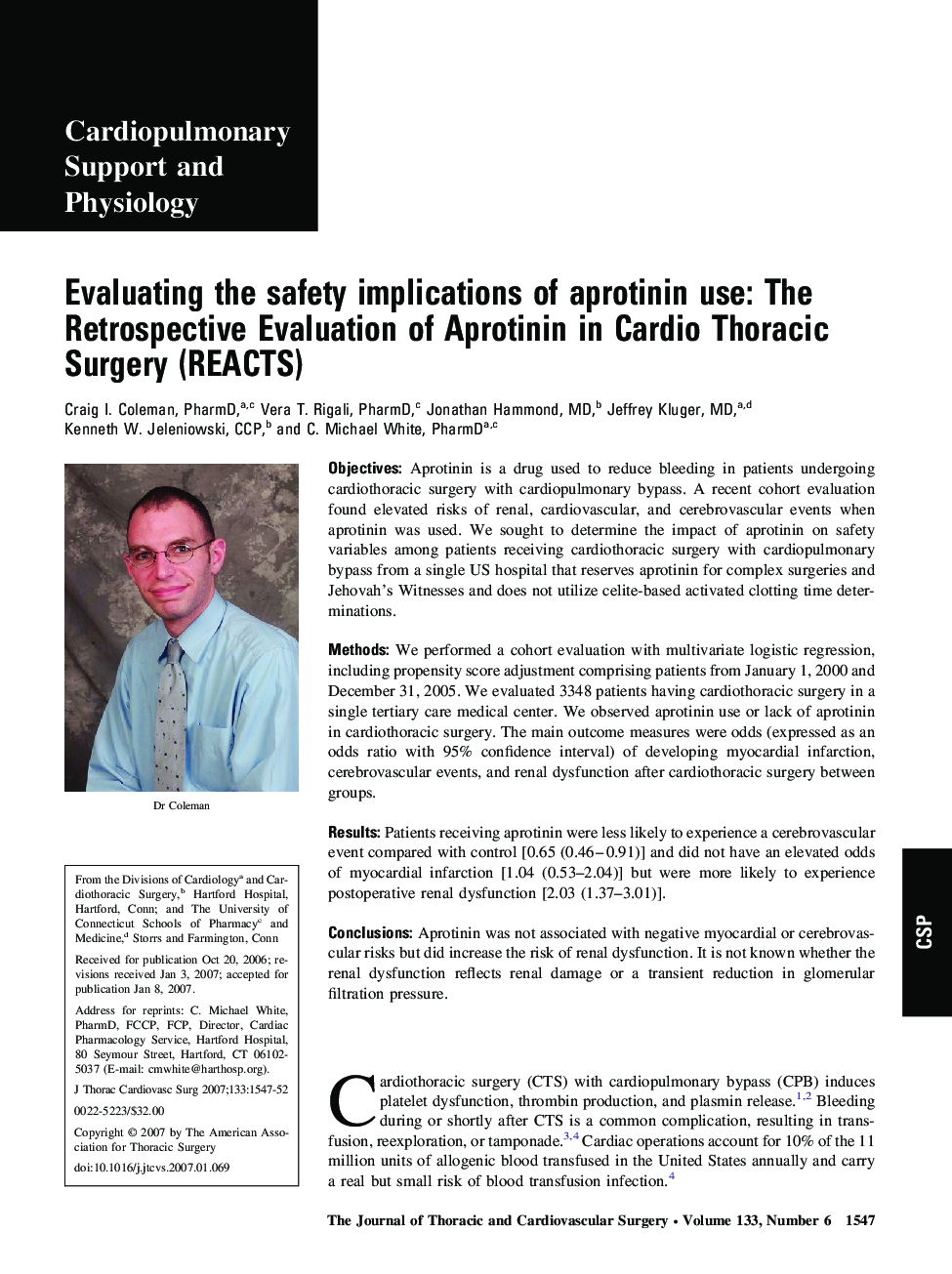| Article ID | Journal | Published Year | Pages | File Type |
|---|---|---|---|---|
| 2983842 | The Journal of Thoracic and Cardiovascular Surgery | 2007 | 6 Pages |
ObjectivesAprotinin is a drug used to reduce bleeding in patients undergoing cardiothoracic surgery with cardiopulmonary bypass. A recent cohort evaluation found elevated risks of renal, cardiovascular, and cerebrovascular events when aprotinin was used. We sought to determine the impact of aprotinin on safety variables among patients receiving cardiothoracic surgery with cardiopulmonary bypass from a single US hospital that reserves aprotinin for complex surgeries and Jehovah’s Witnesses and does not utilize celite-based activated clotting time determinations.MethodsWe performed a cohort evaluation with multivariate logistic regression, including propensity score adjustment comprising patients from January 1, 2000 and December 31, 2005. We evaluated 3348 patients having cardiothoracic surgery in a single tertiary care medical center. We observed aprotinin use or lack of aprotinin in cardiothoracic surgery. The main outcome measures were odds (expressed as an odds ratio with 95% confidence interval) of developing myocardial infarction, cerebrovascular events, and renal dysfunction after cardiothoracic surgery between groups.ResultsPatients receiving aprotinin were less likely to experience a cerebrovascular event compared with control [0.65 (0.46–0.91)] and did not have an elevated odds of myocardial infarction [1.04 (0.53–2.04)] but were more likely to experience postoperative renal dysfunction [2.03 (1.37–3.01)].ConclusionsAprotinin was not associated with negative myocardial or cerebrovascular risks but did increase the risk of renal dysfunction. It is not known whether the renal dysfunction reflects renal damage or a transient reduction in glomerular filtration pressure.
